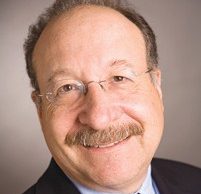By Julian Moore on Sept. 7, 2012
Camarillo-based media company Salem Communications, which serves up conservative political commentary on sites such as HotAir.com and dozens of talk radio stations across the country, is in a position to tap new revenue streams this election season.
[wikichart align=”right” ticker=”NASDAQ:SALM” showannotations=”true” livequote=”true” startdate=”07-03-2012″ enddate=”07-09-2012″ width=”300″ height=”245″]Media experts of all political stripes have predicted that the 2012 campaign season will yield record profits for television and radio companies offering ad space to political campaigns. But it remains unclear whether Salem, a self-described conservative and Christian broadcasting company, will reap big profits from an election experts say will be focused on the economy rather than social issues.
The U.S. Supreme Court ruled in 2010 that restrictions on campaign donations from independent corporations are an impediment to free speech. That decision opened the door to a host of new sources of revenue for politically focused media companies. Even in 2010 — a non-presidential election year in which spending is slower than in presidential elections, and before the court’s ruling took effect —
Salem brought in $3.7 million in political advertising revenue, according to filings with the U.S Securities and Exchange Comission. The company declined to comment for this story.
Salem is publicly traded on the Nasdaq but is majority-owned by co-founders Edward G. Atsinger III and Stuart W. Epperson, a one-time Republican congressional candidate in North Carolina. The company’s radio sector garners roughly 6.7 million listeners every week. Its programs, such as “Christian Teaching and Talk,” feature discussions on issues historically attached to conservative political platform, such as gay marriage and abortion.
According to Salem’s SEC filings, the company regularly receives a boost from political ads during campaign years. During 2008, the most recent presidential election year, Salem pulled in $222.5 million in total revenue. In 2009, total revenue was $199.2 million. By 2011, that number had ramped up to $218.2 million again.
Its broadcast segment typically sees the biggest boost from election-year advertising spending. Last year, Salem saw a $2.6 million increase in political broadcast advertising, it said, “which favorably affects our revenue in active election years.”
So far this year, Salem has earned $400,000 from political commercials, but industry analysts say the lion’s share of campaign money is yet to come.
“Over the next nine weeks is when we historically see the ads pick up,” said Barry Lucas, an analyst for GAMCO Investors who tracks Salem. “It’s too early to tell, but [Salem] should do fairly well.”
Lucas also said that this November could be particularly lucrative for Salem because of a shifting partisan dynamic. This year, it’s Republicans that must work to unseat an incumbent, unlike 2004, when the onus was on Democrats to change the status quo, or in 2008 when the presidency was up for grabs by either party.
“This year will be different because you have a Republican base that is more energized than in the past, and they need to reinforce that just before the election,” Lucas said. “This year could actually be better than 2008,” he said.
Salem’s share price is up more than 94 percent year-to-date.
Anil Gupta, an industry analyst with Imperial Capital, said there are two categories of political advertising that net profits for companies such as Salem. The first are issue advertisements that aim to sway public opinion on a set of campaign talking points, such as immigration or abortion. Those ads can be “really hard to predict because those can change as the campaign continues,” he said.
Moreover, Salem’s niche focus as a conservative, Christian radio company could limit its ability to win business for ads on certain issues. When talking points in a campaign veer from social issues such as abortion and toward issues such as immigration, Salem’s audience could be less appealing to advertisers. “If they [campaign managers] feel like the Hispanic vote is more important, that’s bad for Salem,” he said.
The other source of advertising content for Salem is from negative campaign ads, which attack a specific candidate’s qualifications or voting record.
“The timing on this stuff is difficult, because it’s state by state, day by day,” Gupta said. He said Salem earned $3.7 million in political advertising during the 2010 election cycle, and that its goal is to earn at least that much this year.
While radio remains a key medium for campaign advertisements, its market share is starting to give way to television and the Internet. According to industry publication Radio World, Wells Fargo media analyst Marci Ryvicker projects political campaigns will spend only $256 million on radio ads nationwide, compared to the $2.6 billion she expects will be spent on television.
Paul Winn, political director for the communications agency Smart Media Group in Virginia, said spending on political advertisements has become diffuse, with organizations that have never been politically active jumping in for the first time and new groups springing up. “There have been larger advertising budgets this year, mostly because there are more groups interested,” he said.
Winn said that the number of new groups putting out ads this year is likely the result of the 2010 decision. “In some races, there have been half a dozen to a dozen groups running ads, which is well above what a normal race would get before,” he said.
But Winn says that issues revolving around the economy and job creation will dominate both sides’ attempts to sway voters through the airwaves. “The tone is so much fiscal, so much financial, and the social ads will pale in comparison to the economic advertisements,” Winn said.






 Print
Print Email
Email

















